Tehran-Moscow monetary deal now operational, Iran's Central Bank chief says

Iran and Russia have implemented a bilateral currency agreement to settle trade using their national currencies, according to the governor of Iran's Central Bank.

Iran and Russia have implemented a bilateral currency agreement to settle trade using their national currencies, according to the governor of Iran's Central Bank.
“The currencies of the two countries have been settled based on the agreed market exchange rate for trade,” Iran’s state media quoted Mohammad-Reza Farzin as saying in Moscow on Friday.
Farzin also highlighted progress in integrating the Russian Mir and Iranian Shetab card payment networks, saying that the first phase of the project has been launched.
The joint action plan between the central banks of Iran and Russia, Farzin added, has been implemented under three main areas: the use of national currencies in trade, connecting the banking and local messaging systems of the two countries and linking their card payment networks.
It was unclear if the development was related to an Iranian-Russian comprehensive strategic partnership agreement signed on Friday by Russian President Vladimir Putin and his Iranian counterpart Masoud Pezeshkian.
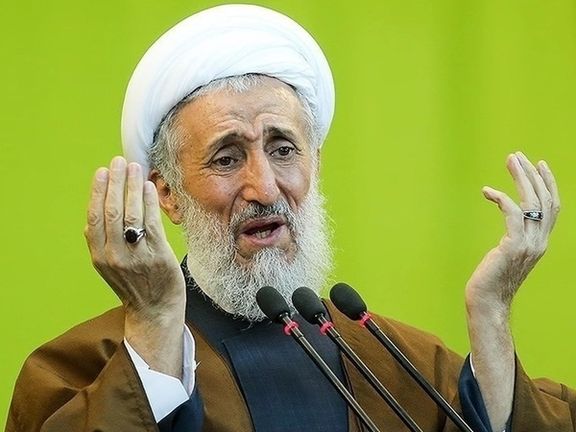
State-appointed Iranian clerics expressed conflicting views in their Friday sermons about negotiations with the United States, just days before President-elect Donald Trump is set to take office.
Clerics delivering the political speeches on the weekly Islamic holy day are appointed by Supreme Leader Ali Khamenei and reflect prevailing sentiment within the theocracy.
Tehran's interim Friday Prayer imam, Kazem Sedighi, spoke out against talks with Washington, dismissing the idea that Iran needs to reduce sanctions to address its current economic crisis.
Sedighi's remarks were in line with Iranian hardliners who continue to criticize the proponents of reconciliation with the West.
"To think that if the United States reconciles with us, our livelihood will prosper and our needs will be met goes against reason, experience, and the Holy Quran. God has not permitted a faithful community to live under the banner of disbelief," Sedighi said.
"Those who speak of reconciliation with the United States and trample on past experiences and the blood of martyrs should know that our people have sacrificed their blood and youth," he added.
Since Iran's regional military setbacks last year and the steep fall in the value of its currency, many officials and politicians loyal to the Islamic Republic have called for negotiations with the US, citing the need to transcend an economic crisis that has impoverished tens of millions of Iranians.
The Friday imam of Karaj, a city near Tehran, also criticized those who believe the promises of the "Enemy"—a term used by Iranian officials for the United States—but conceded that talks benefiting Iran could be permitted.
"Negotiations that safeguard national interests are acceptable as long as those interests are not compromised," Mohammad Mehdi Hamedani said, adding, "However, based on past experiences, if negotiations occur under conditions that fail to protect national interests, they will result in yet another outright loss."
Both clerics urged the public not to trust the US, arguing for the need to raise awareness about what they described as the duplicity of major powers and their empty promises. They urged the public not to trust non-state information and what they described as "propaganda by enemies."
Iranian officials have grown increasingly concerned about what they perceive as widespread ideological apathy among the Iranian population and a declining trust in the Islamic Republic, particularly following the 2022 nationwide anti-state protests.
Despite decades of strict media control and internet restrictions, Iranians continue to watch Persian-language satellite television channels broadcast from abroad and use circumvention tools to access uncensored information online.
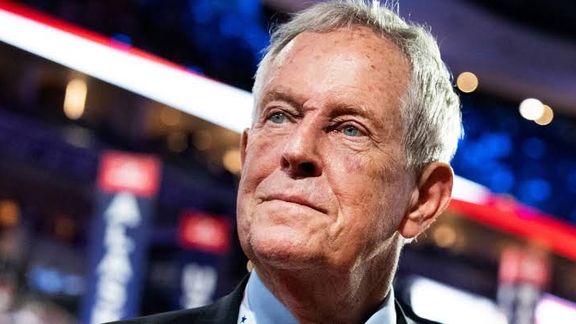
US Congressman Joe Wilson called for action to counter Russia and Iran after they signed a strategic pact on Friday, saying US President-elect Donald Trump will solve the issue.
“To defeat Iran, stop Russia. @realDonaldTrump will fix it,” the South Carolina Republican representative wrote on X Friday after the presidents of Russia and Iran signed a 20-year pact at the Kremlin just three days before Trump’s inauguration.
In a separate post, Wilson praised Scott Bessent, Trump’s treasury secretary-designee, for his economic ambition and stance on Iran and Russia.
“I am so grateful for Scott Bessent, who will impose maximum pressure sanctions on Iran and Russia ... He will help create the Trump economic boom. He is a South Carolinian, and we could not be prouder,” Wilson wrote on X.
Analysts say the Moscow-Tehran pact signals a united front Moscow in the face of Trump’s return, as his advisors have reportedly drafted sanctions to push a Russia-Ukraine accord while pressuring Iran.
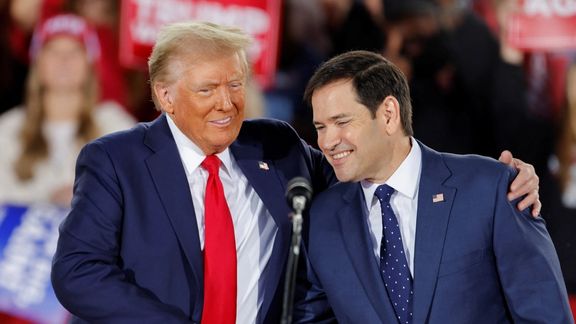
The incoming administration of Donald Trump has revealed little about their policy toward Iran, with many in Washington debating the next moves on sanctions, the nuclear issue, and Tehran's broader role in global stability.
On Thursday, I had a brief encounter with Trump’s pick for Secretary of State, Senator Marco Rubio, in the halls of the Senate Russell Building. When asked about the United States’ current sanctions on Iran, Rubio offered a succinct justification.
“If Iran didn’t flow money to terrorist groups, there would be no sanctions,” he said, stressing his belief that the Iranian regime prioritizes its geopolitical ambitions over the welfare of its citizens. “I see no evidence that the regime spends the money they generate for the people of Iran,” he added.
I also pressed Rubio on what an acceptable nuclear deal with Iran would look like. “We will discuss that once I’m confirmed,” he said, citing his pending confirmation as state secretary.
Senator Rubio’s comments suggest that the administration may be recalibrating its approach to diplomacy with Tehran, but the specifics remain tightly guarded.
Last week, Representative Michael Waltz highlighted the broader geopolitical stakes of Washington’s “maximum pressure” campaign against Iran. Waltz framed Iran’s influence as extending beyond the Middle East, impacting other theaters of global conflict.
“Maximum pressure, not only will it help stability in the Middle East, but it’ll help stability in the Russia-Ukraine theater as well, as Iran provides ballistic missiles and literally thousands and thousands of drones that are going into that theater,” he said.
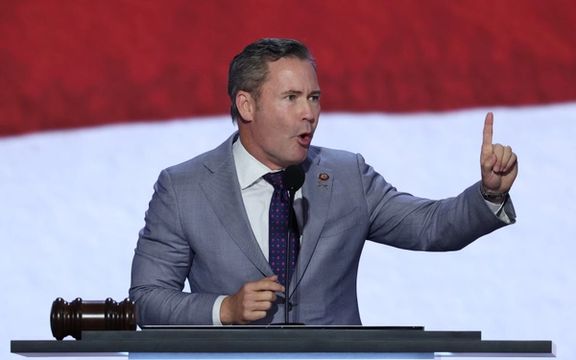
These comments shed light on some key aspects of the Trump administration’s approach to Iran on three tiers:
1. Domestic
Rubio’s criticism of Tehran’s resource allocation underscores a broader narrative within US policy circles: that the Iranian government prioritizes its ideological and military goals over improving the lives of ordinary Iranians. This rhetoric not only justifies sanctions but also seeks to build moral justification for US policies.
2. Regional
Rubio’s remarks indicate that sanctions are unlikely to ease as long as Iran continues to support groups like Hezbollah and Hamas. The administration’s hardline stance suggests a belief that financial isolation could force Tehran to reconsider its regional agenda.
3. Global
Waltz’s comments highlight an emerging perspective that Iran’s activities are no longer confined to the Middle East. The administration appears to view Tehran as a destabilizing force in the Russia-Ukraine conflict, through its provision of drones and missiles. This framing links Iran policy to broader US strategic interests in Eastern Europe, potentially broadening the case for continued pressure.
And the nuclear question
Top on the Trump team’s list of priorities when it comes to Iran is, of course, the country’s nuclear program. Rubio’s reticence on the issue suggests that the administration may still be formulating its approach. While the specifics remain uncertain, any future negotiations would likely focus on verifiable limits to Iran’s nuclear capabilities, coupled with measures to curb its missile program and regional influence.
The Trump administration’s Iran strategy continues to evolve, but its broad contours reflect a commitment to economic pressure and containment. Comments from Rubio and Waltz signal a focus on curtailing Iran’s regional and global influence, tying these efforts to broader US interests.
As the administration moves forward, it remains to be seen how these priorities will translate into concrete policies, particularly on the nuclear front. For now, the Trump team is keeping their cards close to their chest.
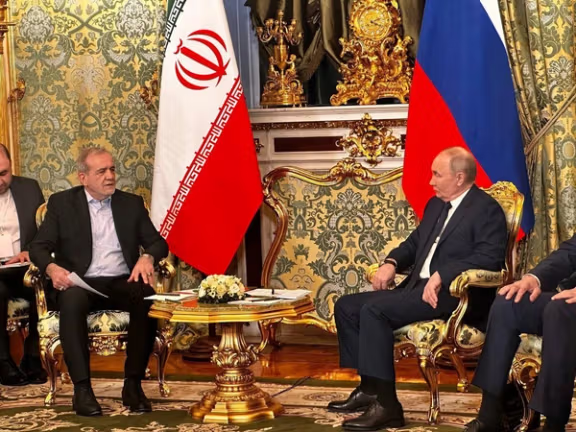
Iran’s President Masoud Pezeshkian and his delegation were kept waiting for about an hour to meet Russian President Vladimir Putin during his trip to Moscow on Friday, a source told Iran International.
According to the source, the delegation from Iran was given the option to either wait in the lounge or return to their hotel, as Putin was not yet ready to meet.
Pezeshkian decided to leave the Kremlin under the pretext of saying prayers before returning for the delayed meeting.
Putin has routinely made world leaders await his arrival in what is widely viewed as a psychological tactic by the former KGB operative. In two of the most notorious instances, Putin kept German Chancellor Angela Merkel and former Ukrainian President Viktor Yanukovych waiting for around four hours.
Leaders from Japan, Mongolia and Israel were made to wait for up to three hours. In 2003, Putin kept Queen Elizabeth II of the United Kingdom waiting for almost 15 minutes, a rare slight for the revered monarch.
In 2012, then-US President Barack Obama had to delay post-meeting plans by 40 minutes due to Putin's tardiness.
Analysts believe Putin aims to throw off counterparts and gain an advantage in negotiations with the move, which has mostly been deployed with leaders not in favor with Moscow.
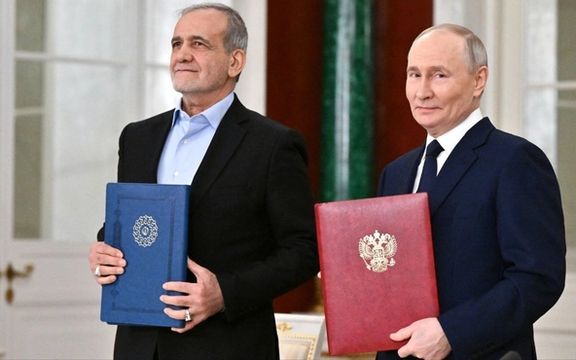
Russian President Vladimir Putin and his Iranian counterpart Masoud Pezeshkian signed a comprehensive strategic partnership agreement in Moscow on Friday.
At a joint press conference after signing the agreement, the two leaders said Russia and Iran would increase cooperation across a range of areas including politics, security, trade, transport and energy.
Before their meeting, Pezeshkian and his delegation were kept waiting for around an hour as Putin arrived late, a source told Iran International.
Iran and Russia have strengthened ties in recent years, pushed together by isolation led by the United States and shared strategic interest in resisting Washington.
In the strategic pact signed on Friday, the two countries agreed to strengthen cooperation in the fields of security and defense, Russian state-run TASS news agency reported.
"Russia and Iran have agreed that in the event of an attack on one party, the other party will under no circumstances support the aggressor," the report said.
Putin told the joint press conference that plans are advancing to export natural gas to Iran as part of the agreement, saying Russian supply to Iran could ultimately reach 55 billion cubic meters per year.
But he cited delays to Russia's efforts to build up nuclear power infrastructure in Iran, adding that Moscow is considering further construction to address the situation.
"We have a huge project in the nuclear power industry. One unit is already operating successfully. We are now discussing the possibility of building additional units."
During the press conference, Pezeshkian expressed support for resolving the Russia-Ukraine conflict through negotiations, saying Western countries must respect the security concerns of other nations.
"The agreements and policies signed today emphasize understanding, avoiding unilateralism, and cooperating with regional actors to resolve issues within the region, making the intervention of other countries in the Middle East unnecessary."
Both nations have faced Western sanctions - Russia due to its full-scale invasion of Ukraine and Iran over its support for armed groups in the Mideast, nuclear program and human rights abuses.
Moscow and Tehran have stepped up military cooperation and Russia has deployed Iranian drones and missiles in Ukraine, despite Tehran's denials.
In the Middle East, Iran and Russia have collaborated closely particularly in Syria, where the downfall of their longtime ally Bashar al-Assad was a major setback.
This evolving geopolitical landscape has further incentivized Tehran and Moscow to solidify their partnership. Analysts say the pact’s timing is a sign Moscow and Tehran are bracing for Donald Trump’s return to the White House this month.
Advisers to Trump, who takes office next Monday, are reportedly crafting a wide-ranging sanctions strategy to facilitate a Russia-Ukraine diplomatic accord in the coming months while at the same time squeezing Iran, people familiar with the matter told Bloomberg.
According to the source speaking to Iran International, following Putin's delay the Iranian presidential delegation was given the option to either wait in a lounge or return to their hotel.
Pezeshkian decided to leave the Kremlin under the pretext of saying prayers before returning for the delayed meeting.
Putin has routinely made world leaders await his arrival in what is widely viewed as a psychological tactic by the former KGB operative but usually employed with leaders Moscow views as an adversary.